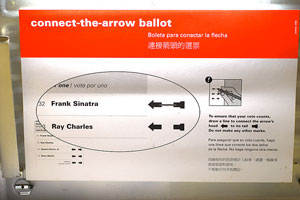 Flickr/rachelpasch (Creative Commons).It never ceases to amaze me how little elections have to do with actual issues. It’s widely acknowleged that the Democrat, Martha Coakley, is in big trouble in the Massachusetts special election race to replace the late Sen. Ted Kennedy. But her troubles seem to have very little to do with her actual positions on the issues.
Flickr/rachelpasch (Creative Commons).It never ceases to amaze me how little elections have to do with actual issues. It’s widely acknowleged that the Democrat, Martha Coakley, is in big trouble in the Massachusetts special election race to replace the late Sen. Ted Kennedy. But her troubles seem to have very little to do with her actual positions on the issues.
Even if Scott Brown, the conservative Republican candidate, wins on Tuesday, Massachusetts will still be a very liberal state. Coakley’s issue positions will be far closer than Brown’s to the state’s median voter. And yet he would be the senator—not because more Bay Staters agree with him, but simply because he proved to be much, much better at politics than she is. Politics isn’t about being right, or even about having people think you’re right. It’s more about making people like you. And as Christina Bellantoni reports here, people—even partisan Dems—don’t seem to like Coakley very much. (And it certainly doesn’t hurt Brown that he’s tall and good-looking.)
If Brown wins, a lot of normally left-leaning folks will probably have voted for him. That’s their right. But voting for members of Congress based on likability doesn’t make a whole lot of sense. Now more than ever, you’re really voting for a party, not an individual. If you prefer the Republicans’ approach to the issues, you should vote for the Republican. If you prefer the Democrats’ approach, you should vote for the Democrat. No one should be under any illusions that Brown is likely to be anything more than a partisan Republican—or that Coakley will be anything more than a partisan Democrat. That’s the real choice on Tuesday.
















